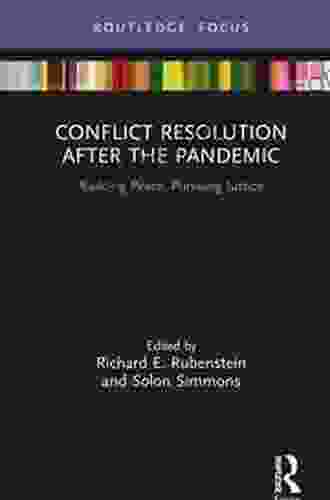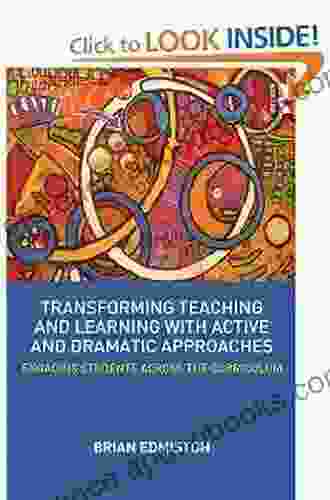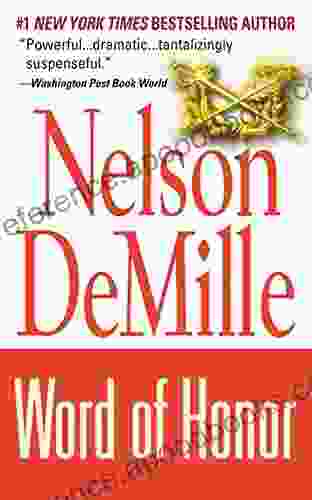Conflict Resolution After The Pandemic: Navigating the New Normal

The global pandemic has profoundly impacted every aspect of our lives, including the way we interact and resolve conflicts. As we navigate the new normal, it's imperative to understand the evolving landscape of conflict resolution and equip ourselves with effective strategies to address disputes respectfully and constructively.
5 out of 5
| Language | : | English |
| File size | : | 2165 KB |
| Text-to-Speech | : | Enabled |
| Screen Reader | : | Supported |
| Enhanced typesetting | : | Enabled |
| Word Wise | : | Enabled |
| Print length | : | 154 pages |
The Impact of the Pandemic on Conflict
The pandemic has exacerbated existing conflicts and created new ones. Lockdowns, travel restrictions, and economic disruptions have strained relationships and tested our patience. Virtual communication has introduced additional challenges, making it harder to convey empathy and resolve misunderstandings.
- Increased Stress and Anxiety: The pandemic has taken a significant mental and emotional toll on many individuals. Stress and anxiety can make people more irritable and less tolerant, increasing the likelihood of conflicts.
- Communication Challenges: Remote work and social distancing have reduced face-to-face interactions, making it harder to communicate effectively. Misunderstandings and misinterpretations can arise from written or virtual communications.
- Changes in Relationships: The pandemic has disrupted work, school, and family routines. These changes can alter relationships and create new sources of tension.
Essential Strategies for Conflict Resolution
To navigate conflicts effectively in the post-pandemic era, we need to adopt new approaches and refine existing ones. Here are some essential strategies:
- Acknowledge and Validate Emotions: Recognize that conflicts often stem from unmet needs or emotions. Actively listen to the other person's perspective and try to understand their feelings without judgment.
- Use "I" Statements: Express your own needs and concerns using "I" statements. This helps avoid blaming the other person and creates a more collaborative atmosphere.
- Seek Common Ground: Identify areas of agreement or shared goals to build a foundation for resolving differences.
- Use Active Listening: Pay full attention to the other person's words and body language. Summarize and restate their points to ensure understanding.
- Consider Different Perspectives: Try to see the conflict from multiple viewpoints. This helps broaden your understanding and identify potential solutions that meet the needs of all parties.
- Explore Options Together: Collaboratively brainstorm and evaluate possible solutions. Be open to compromise and consider creative approaches.
- Seek External Support if Necessary: If you're struggling to resolve a conflict on your own, consider seeking support from a neutral third party, such as a mediator or conflict resolution professional.
Workplace Conflicts
The post-pandemic workplace presents unique challenges for conflict resolution. Hybrid work arrangements and remote teams can lead to communication breakdowns and misunderstandings. Employers must prioritize creating a positive work environment that fosters open and respectful dialogue.
- Establish Clear Communication Channels: Ensure employees have access to multiple communication platforms and encourage them to use video conferencing to facilitate face-to-face interactions.
- Foster a Culture of Collaboration: Promote teamwork and encourage employees to work together to solve problems and resolve conflicts.
- Provide Training and Support: Offer conflict resolution training and resources to employees to equip them with the necessary skills to handle disputes effectively.
Family Conflicts
The pandemic has also put a strain on family relationships. Financial stress, childcare responsibilities, and conflicting values can lead to tension and disagreements. It's important to prioritize communication and support within families.
- Set Aside Time for Family Communication: Schedule regular family meetings or meals to discuss issues and concerns openly.
- Respect Boundaries: Establish clear boundaries and expectations to prevent conflicts from escalating.
- Seek Professional Help When Needed: If family conflicts become unmanageable, consider seeking support from a family therapist or counselor.
Societal Challenges
The pandemic has also amplified societal divisions and conflicts. Fear, misinformation, and economic disparities can lead to misunderstandings, prejudice, and social unrest. Constructive dialogue and conflict resolution are essential for fostering inclusivity and building a more just and harmonious society.
- Promote Active Listening: Encourage open and respectful conversations between individuals with different perspectives to bridge divides and find common ground.
- Facilitate Dialogue: Support initiatives that bring people together to discuss and resolve societal challenges.
- Challenge Prejudice and Misinformation: Engage in critical thinking and information verification to combat misinformation and promote understanding.
The post-pandemic era presents unprecedented challenges for conflict resolution. By adopting new strategies, fostering communication, and seeking support when needed, we can navigate conflicts effectively and build stronger relationships in all areas of our lives. Remember, conflict is a natural part of human interaction, and it can be an opportunity for growth, understanding, and connection if approached with empathy and constructive intent.
5 out of 5
| Language | : | English |
| File size | : | 2165 KB |
| Text-to-Speech | : | Enabled |
| Screen Reader | : | Supported |
| Enhanced typesetting | : | Enabled |
| Word Wise | : | Enabled |
| Print length | : | 154 pages |
Do you want to contribute by writing guest posts on this blog?
Please contact us and send us a resume of previous articles that you have written.
 Book
Book Novel
Novel Page
Page Chapter
Chapter Text
Text Story
Story Genre
Genre Reader
Reader Library
Library Paperback
Paperback E-book
E-book Magazine
Magazine Newspaper
Newspaper Paragraph
Paragraph Sentence
Sentence Bookmark
Bookmark Shelf
Shelf Glossary
Glossary Bibliography
Bibliography Foreword
Foreword Preface
Preface Synopsis
Synopsis Annotation
Annotation Footnote
Footnote Manuscript
Manuscript Scroll
Scroll Codex
Codex Tome
Tome Bestseller
Bestseller Classics
Classics Library card
Library card Narrative
Narrative Biography
Biography Autobiography
Autobiography Memoir
Memoir Reference
Reference Encyclopedia
Encyclopedia Travis Towns
Travis Towns Sarah Orne Jewett
Sarah Orne Jewett Abbie Frost
Abbie Frost Glynis Peters
Glynis Peters Nasira Jamal
Nasira Jamal Sam Thiara
Sam Thiara Stewart Bell
Stewart Bell Carl Magnus Palm
Carl Magnus Palm Nina Atwood
Nina Atwood Abby Goodrich
Abby Goodrich Bobby Shanks
Bobby Shanks Damtew Teferra
Damtew Teferra Aaron Keim
Aaron Keim John Baltisberger
John Baltisberger Rolson St Louis
Rolson St Louis Joy Deja King
Joy Deja King A T Butler
A T Butler Don Emby
Don Emby Adam Black
Adam Black David Marcus
David Marcus
Light bulbAdvertise smarter! Our strategic ad space ensures maximum exposure. Reserve your spot today!
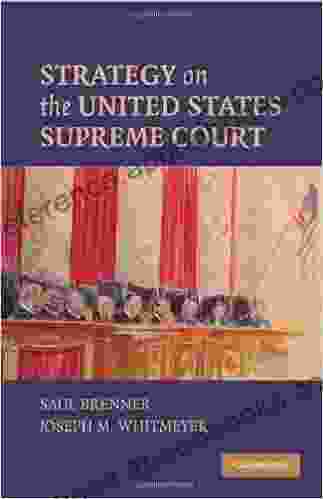
 Jackson BlairUnveiling the Inner Workings: A Comprehensive Guide to Strategy on the United...
Jackson BlairUnveiling the Inner Workings: A Comprehensive Guide to Strategy on the United... Ethan GrayFollow ·16.1k
Ethan GrayFollow ·16.1k Jason ReedFollow ·9.7k
Jason ReedFollow ·9.7k Dalton FosterFollow ·18.8k
Dalton FosterFollow ·18.8k Pablo NerudaFollow ·4.5k
Pablo NerudaFollow ·4.5k Desmond FosterFollow ·2.4k
Desmond FosterFollow ·2.4k Charles ReedFollow ·7k
Charles ReedFollow ·7k Anton FosterFollow ·10.9k
Anton FosterFollow ·10.9k Raymond ChandlerFollow ·14.7k
Raymond ChandlerFollow ·14.7k

 Justin Bell
Justin BellUnlock National Biology Success: The Ultimate Guide to...
Mastering the Fundamentals: A Comprehensive...
 Luke Blair
Luke BlairAC/DC: The Early Years with Bon Scott – A Thunderstruck...
In the annals of rock and roll history, few...
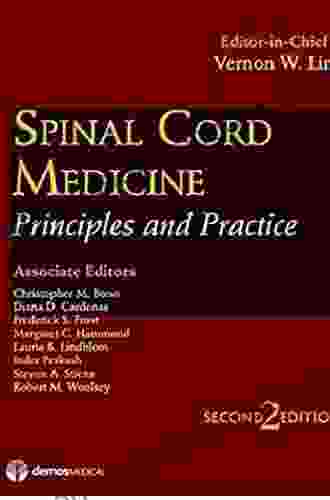
 Darren Nelson
Darren NelsonSpinal Cord Medicine Second Edition: The Comprehensive...
The second edition of Spinal Cord Medicine...

 Cole Powell
Cole PowellArabian Horse Training: Unlock the Secrets for a...
Indulge in the captivating world of Arabian...

 Oscar Wilde
Oscar WildeRevise Curriculum For Excellence SQA Exams: The Ultimate...
The Scottish...

 David Peterson
David PetersonEndoscopic Ear Surgery: A Comprehensive Guide for...
Endoscopic Ear...
5 out of 5
| Language | : | English |
| File size | : | 2165 KB |
| Text-to-Speech | : | Enabled |
| Screen Reader | : | Supported |
| Enhanced typesetting | : | Enabled |
| Word Wise | : | Enabled |
| Print length | : | 154 pages |


